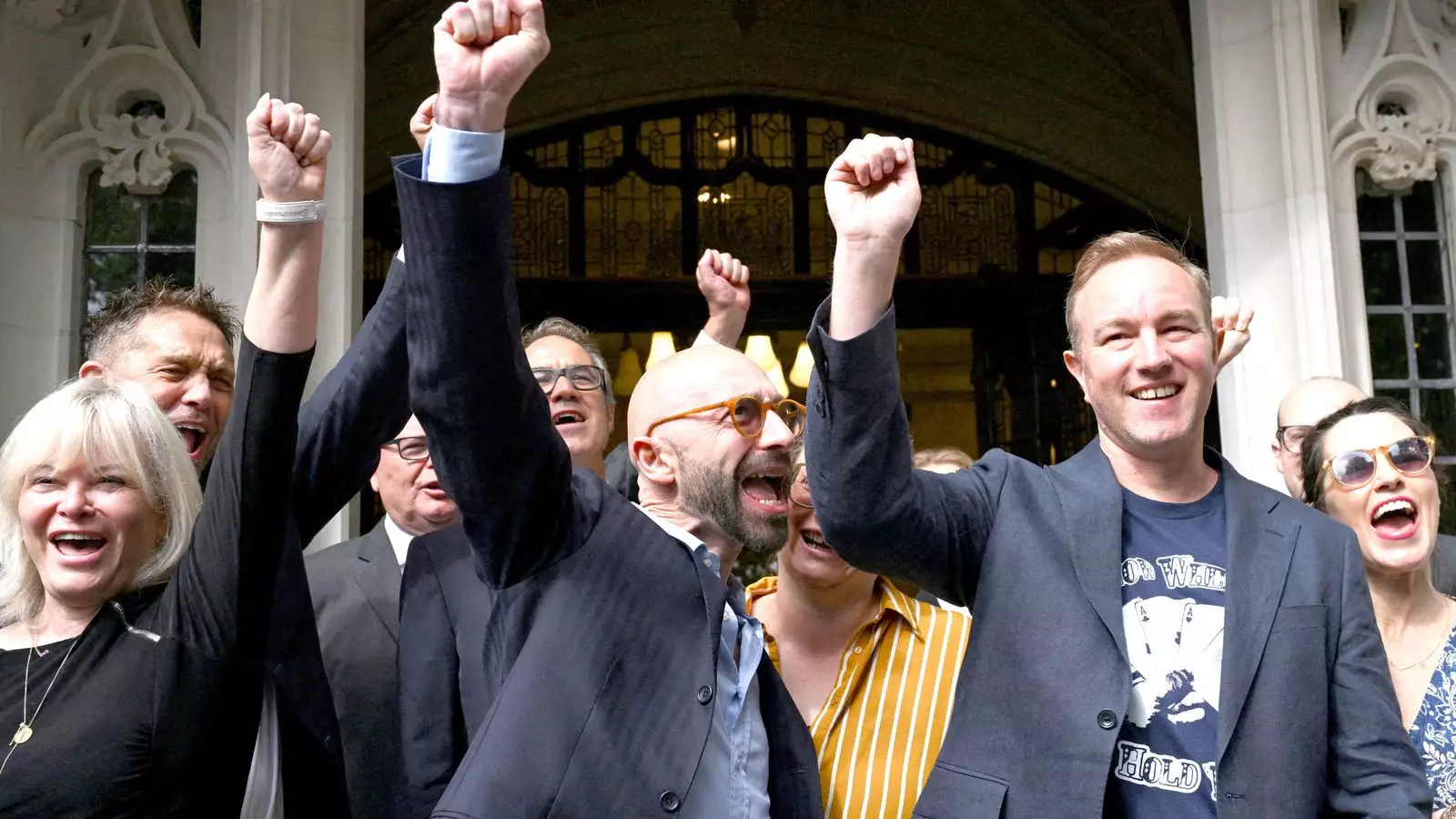The recent decision by the UK Supreme Court to overturn the convictions of Tom Hayes and Carlo Palombo casts a stark spotlight on the flaws embedded within financial crime prosecutions. These cases, once heralded as powerful demonstrations of accountability in the wake of the 2008 financial meltdown, now seem less like triumphs of justice and more like cautionary tales about prosecutorial overreach and the dangers of rigid legal interpretations. The court’s ruling exposes how the pursuit of punishing high-profile traders can sometimes eclipse the nuanced complexities of financial markets, leading to wrongful convictions based on flawed assumptions and misapplied legal standards.
This outcome forces us to reevaluate the morality and efficacy of heavy-handed criminalization in the finance sector. Hayes and Palombo, portrayed as scapegoats or villains, are being vindicated not because they are innocent in a moral sense, but because the legal process — the very bedrock of justice — was fundamentally misapplied. Their cases underscore a troubling trend: criminal justice has morphed into a tool for political optics rather than a fair arbiter of truth. When the Supreme Court emphasizes that jury directions were flawed, it reveals systemic issues in how financial crimes are prosecuted, often relying on assumptions that do not withstand rigorous legal scrutiny.
Furthermore, their release raises crucial questions about whether the pursuit of financial criminals is rooted in genuine reform or driven by a desire to appease public outrage. The initial convictions appeared to be served up as a moral victory, a way for authorities to highlight their fight against the shadowy culture of manipulation that supposedly led to the financial crisis. Yet, the court’s decision suggests that this narrative may be oversimplified, risking the erosion of trust in the legal system’s ability to deliver truthful justice rather than symbolic vengeance.
The Myth of the Manipulation and Its Legal Shortcomings
At the heart of these cases was the alleged manipulation of benchmark interest rates like Libor and Euribor—rates that global markets depend on for trillions of dollars’ worth of financial contracts. The prosecution claimed Hayes and Palombo deliberately submitted false rates to inflate earnings, framing them as key culprits in a grand conspiracy. But the Supreme Court’s ruling challenges the fundamental premise that such manipulations constitute unequivocal criminality, especially when the legal interpretation rested on assumptions that banks’ commercial interests should not influence rate submissions.
Hayes, an autodidact gifted in mathematics and diagnosed as autistic, repeatedly maintained that his conduct reflected accepted industry practices and that he believed he was acting within permissible bounds. The court acknowledged that the prosecution’s case depended on a narrow and perhaps misguided interpretation of the legality of banking behavior. The panel argued that the jury was misdirected, and that their convictions were unsafe because the legal instructions did not adequately reflect the realities of financial market operations.
This legal misstep highlights a broader issue: the difficulty of translating complex financial instruments and practices into binary legal judgments. It signals a need for more nuanced, expert-driven legal frameworks that understand the subtleties of finance rather than relying on simplistic interpretations that can be exploited or misapplied. The pitfalls encountered in these cases suggest that criminal law, when applied to specialized fields like finance, must adapt to prevent miscarriages of justice rooted in inadequate legal guidance.
The Political and Moral Implications of Justice Reversal
The reversal of Hayes and Palombo’s convictions is more than just a legal technicality; it embodies a critique of the political approach to regulating and prosecuting finance. For years, lawmakers and regulators have aimed to showcase their resolve by targeting traders, often framing their actions as emblematic of corruption and greed. However, this crackdown appears increasingly disconnected from the reality that many such traders were operating within a murky but legally ambiguous environment.
More troubling is the narrative that painted Hayes and Palombo as villains responsible for systemic fraud. The Supreme Court’s decision discredits such simplistic moral judgments, instead emphasizing the importance of fair legal procedures and evidence-based convictions. It signals a shift away from moral panic towards a more centrist, pragmatic approach—recognizing that punishing individuals based on flawed premises does little to address the complex issues that underpin systemic failures in the financial industry.
This ruling also underscores the need for societal introspection about how justice is pursued in the wake of financial crises. It is imperative that efforts stay grounded in fairness rather than sensationalism; that criminal laws adapt to the intricacies of modern finance instead of being weapons used to paint mere pawns as perpetrators of criminal masterminds. The political impetus to exert moral outrage risks undermining the legitimacy of financial regulation itself, turning what should be measured justice into a spectacle of scapegoating and public spectacle.
Calls for Reform and Reflection
The case’s broader implications are compelling: it prompts an urgent need for reform of how financial misconduct is prosecuted and understood. Instead of relying on scapegoating individuals like Hayes and Palombo, regulators and prosecutors should focus on systemic reforms that address root causes rather than symptomatic targets. Transparency, expert legal guidance, and an acknowledgment of the inherent ambiguities in financial markets must become central to criminal investigations in this space.
Furthermore, this legal overturning invites calls for a public inquiry into the entire process. The inflated narratives of manipulation and greed should not be allowed to overshadow the reality: that the law was often misapplied. An inquiry could shed light on whether prosecutorial overreach was driven by a genuine desire for justice or political expediency, and whether broader reforms in financial regulation are needed to prevent unintentional miscarriages of justice in the future.
The once-celebrated crackdown on libor manipulation now stands as a cautionary example of how urgent, well-informed reforms are needed to restore faith in the legal process and the integrity of financial oversight. Only through honest reflection and systemic change can we hope to create a justice system capable of truly holding financial wrongdoers accountable—or fairly recognizing when accusations are based on flawed legal interpretations.


Leave a Reply